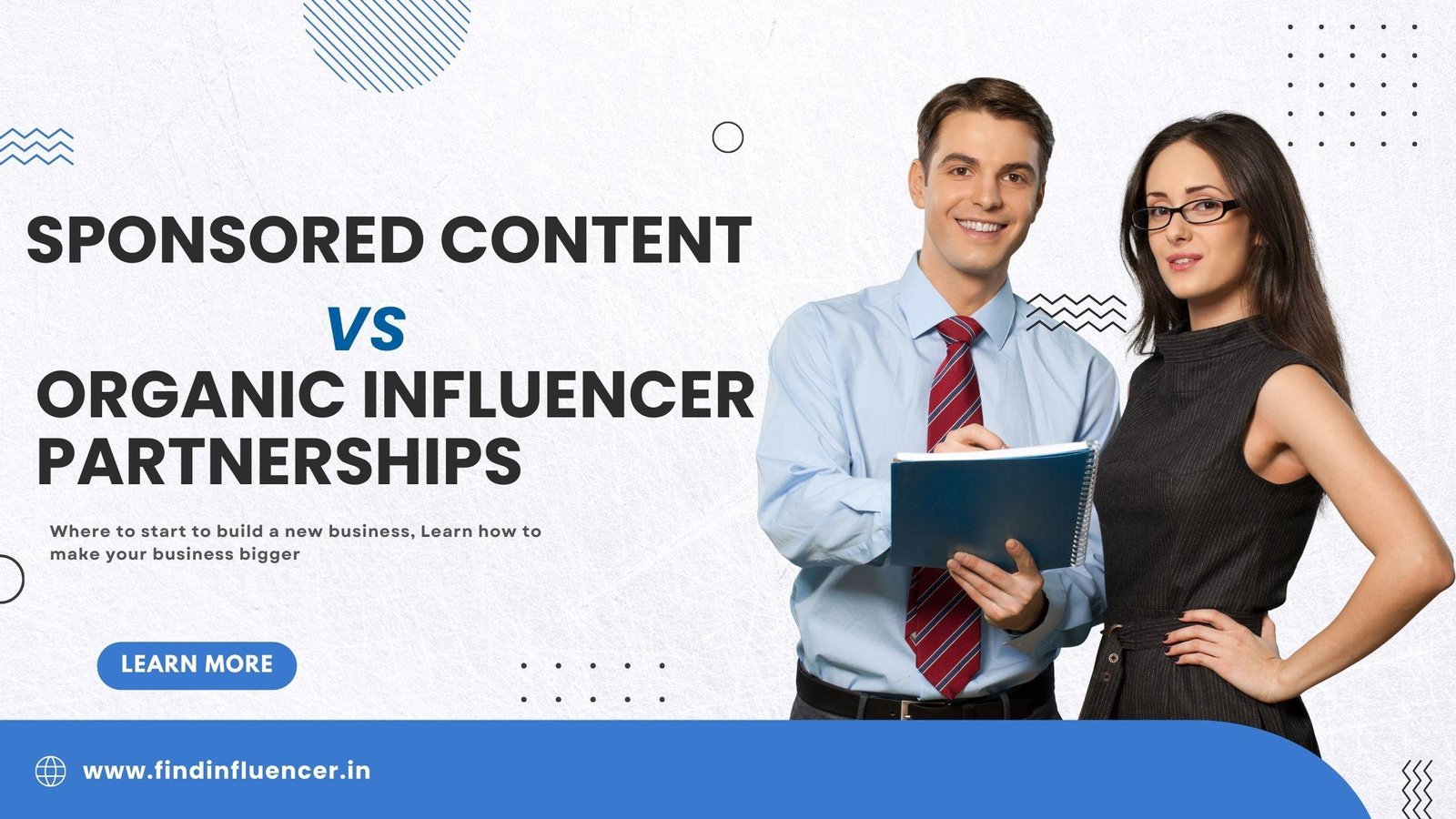
Sponsored Content vs. Organic Influencer Partnerships: Which is Right for Your Brand?
In the dynamic world of influencer marketing, brands often face the problem of choosing between sponsored content and organic influencer partnerships. Both systems have unique benefits and can greatly impact a brand's reach and attention. In this blog, we’ll explore the differences between sponsored content and organic influencer collaborations, allowing you to determine which approach is best for your brand.
Understanding Sponsored Content
What is Sponsored Content?
Sponsored content is a form of influencer commerce where brands pay influencers to create and share a range that promotes their creations or services. This content is often marked as "sponsored" or "ad" to yield with promotion regulations.
Benefits of Sponsored Content
1. Controlled Messaging
Brands have more control over the content, ensuring that the message aligns with their marketing goals and brand voice.
2. Scalable Campaigns
Sponsored content lets brands scale their movements by working with multiple influencers simultaneously, expanding reach and visibility.
3. Immediate Impact
Paid campaigns can yield quick results, such as improved website traffic, sales, or brand awareness, within a short period.
Comprehending Organic Influencer Partnerships
What are Organic Influencer Partnerships?
Organic influencer partnerships are collaborations where influencers freely promote a brand because they genuinely like and use its effects or services. These partnerships are often long-term and based on reciprocal trust and genuineness.
Advantages of Organic Influencer Partnerships
1. Authenticity and Trust
Organic partnerships feel more genuine, as influencers boost outcomes they truly believe in. This authenticity creates trust with their audience.
2. More increased Engagement Rates
Audiences are more likely to discover content that feels natural and not overtly promotional. The organic range often sees higher engagement rates.
3. Long-Term Relationships
- Building long-term relationships with influencers can lead to sustained label compliance and ongoing promotion without additional costs for each post.
Key Differences Between Supported Content and Organic Influencer Partnerships
1. Cost
Sponsored Content: Involves economic assets for each post or campaign.
Organic Partnerships: Generally involve the least or no direct payment, focusing instead on product sales or long-term collaboration.
2. Control Over Content
- Sponsored Content: Brands control the content, ensuring it meets their specific needs.
- Organic Partnerships: Influencers have additional creative freedom, resulting in content that aligns with their style and images more with their audience.
3. Campaign Duration
- Sponsored Content: Often short-term and campaign-specific.
- Organic Partnerships: Usually long-term, enabling more in-depth connections and ongoing promotion.
Choosing the Right Strategy for Your Brand
Consider Your Goals
Rapid Results: If your goal is to drive direct sales or brand awareness, sponsored content might be the better option due to its direct impact.
Building Trust: If you aim to create trust and long-term connections with your audience, organic influencer collaborations are more effective.
Consider Your Budget
Sponsored content needs funding for each post or campaign. Assess your financial help and determine if you can afford regularly funded collaborations.
Organic associations might be more cost-effective, especially for smaller brands with little budgets.
Evaluate Your Brand’s Identity
- Consider how much control you need over the content. If keeping a strict brand voice is important, supported content allows for more management.
If you value authentic, influencer-driven storytelling, organic partnerships enable influencers to share your brand in their unique style.
Combining Both Approaches
Many successful brands use a mix of both sponsored content and organic partnerships to maximize their reach and impact. This hybrid approach allows for immediate promotional increases while also fostering long-term connections and authenticity.
Strategies for Integrating Both Directions
- Start with sponsored content to introduce your brand to the influencer's audience.
Change to organic partnerships as the relationship develops, offering effects for review and promoting genuine acceptance.
Use sponsored posts for major campaigns or product takeoffs while supporting ongoing organic associations for continuous engagement.
Conclusion
Both supported content and organic influencer partnerships offer unique advantages for brands. By comprehending the differences and benefits of each approach, you can make informed decisions that align with your marketing goals, budget, and brand identity. Whether you choose one strategy or a combination of both, leveraging the power of influencers can significantly enhance your brand’s visibility, engagement, and trust in the digital marketplace.

Findinfluencer.in is a influencer marketplace where influencers can get connect directly to business and get the sponsorship done. On the other hand, we also focus on our services and transparency so if a customer is giving a job to any influencer so they don't need to worry about their work and money. We always will be connected to our clients.
Powered By : Vini Tech
Copyright 2024 © Find Influencer All Rights Reserved, Developed By Themekarts
Findinfluencer.in is a influencer marketplace where influencers can get connect directly to business and get the sponsorship done. On the other hand, we also focus on our services and transparency so if a customer is giving a job to any influencer so they don't need to worry about their work and money. We always will be connected to our clients.